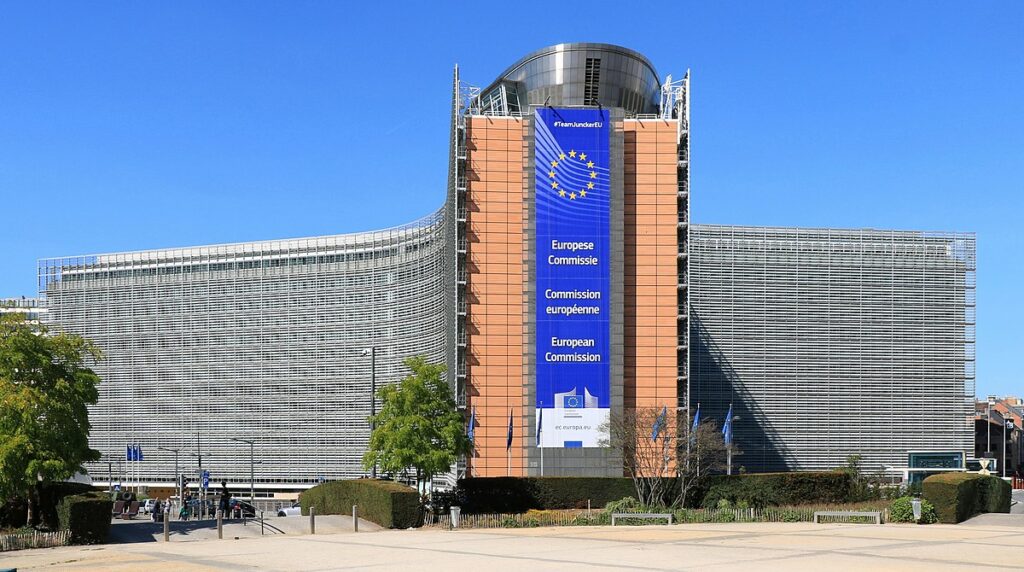The Commission announced on Tuesday that it has tightened some of its rules guiding the travel missions of its staff members following the disclosure of a trip by a senior official which was paid by Qatar.
As previously reported, the European Ombudsman Emily O'Reilly recently sent a formal letter to the European Commission asking it to clarify its procedures and rules concerning EU officials' business trips paid for by third parties (non-EU countries).
The letter was prompted by reports in media that the Director-General of the Commission’s department for mobility and transport (DG MOVE) had taken trips to Qatar that were partly funded by the Qatari government.
The Ombudsman wanted to clarify the extent of paid trips, how the Commission deals with such offers and how the Commission verifies and ensures there are no conflicts of interest in the context of offers to cover expenses in missions by Commission staff. The Commission was asked to reply by 3 June 2023.
As this was a so-called strategic initiative by the Ombudsman, there was no assumption in her letter of any maladministration on part of the senior official concerned. The annex to the letter listed a number of questions but did not specifically address the issue of conflicts of interest. The Commission was quick to declare that the behavior of the official did not violate its current rules.
The Commission has delegated the responsibility for the implementation of its budget to the Director-Generals who as ‘authorizing officers’ are ultimately responsible for approving the travel missions of the staff and the accounts of their departments.
According to the current rules, the Director-Generals approve their own travels and are supposed to assess themselves if, for example, a paid trip by a third party would give rise to a conflict of interest. If the Director-General suspects that this could be the case or give rise to a perception of a conflict of interest, he or she is expected but not obliged to seek advice from the higher political echelon.
Asked by The Brussels Times if it would not be a contradiction to allow a person to assess himself a conflict-of-interest situation and whether not that person should recuse himself from doing it, a Commission’s spokesperson replied that its analysis of what had transpired in this case did not amount to a conflict of interest.
Asked by other journalists whether there would be any repercussions for the Director-General or whether he should resign, the spokesperson replied that the Commission could not preempt the outcome of the on-going Belgian police investigations of Qatargate. “It’s important first to let the Belgian prosecutors do their job,” she said.
The facts speak for themselves. The Commission confirmed that at least one of the Director-General’s flights to Qatar and the hospitality offered there had been paid by the Qatari authorities. Why? It turned out that Qatar was one of several countries with whom the Commission through DG MOVE had conducted negotiations on aviation agreements.
These negotiations took alternatively place in Brussels and Doha during 2016 – 2019 but according to the spokesperson the Director-General had not been involved in them. The question whether he had discussed or influenced the negotiations with his staff was not addressed.
Anyway, these cases of paid trips by third parties are very rare, according to the Commission’s statistic. Overall, since 2019 only 1,5 % of all mission travels have been paid by third parties and for Director-Generals the figures is even lower (0,2 %).
The Commission started already last year an update of the current staff rules and guidelines on travels and conflict of interest that have been in place for several years. On Tuesday, the Commission introduced the first phase of this revision which entered into force the same day although they have not been published yet. The rules apply both to the European Commission and the European External Action Service.
Third party contributions to covering mission costs are now limited to EU Member States, EEAS and EFTA countries, international organisations such as the UN, G20/G7 as well as public and private universities when the mission is for academic purposes.
Directors-General and Heads of Service now also need to consult the Head of Cabinet of the Commissioner of their policy area when authorising their own missions where costs are covered by third parties.
According to the Commission, these clarifications will “support further the diligent application of the rules and help eliminate not only potential but also perceived conflicts of the interest”.
M. Apelblat
The Brussels Times

